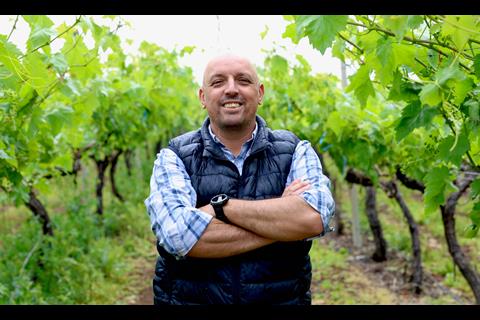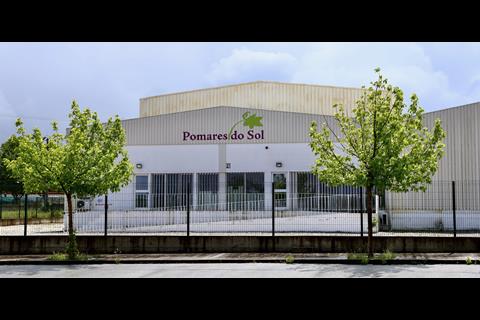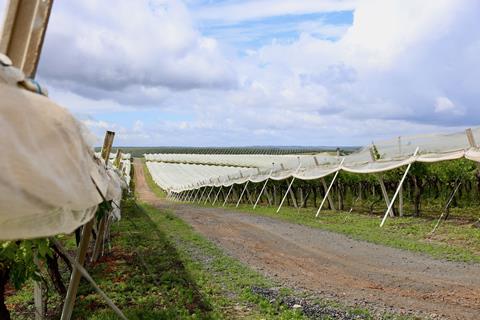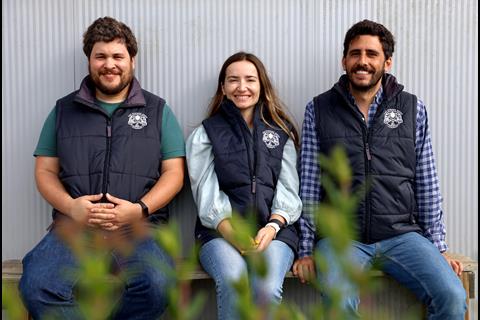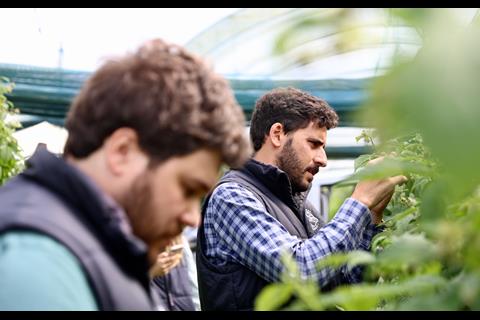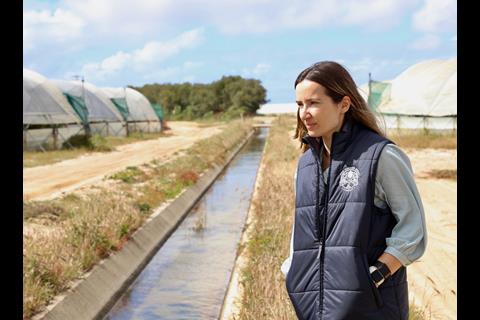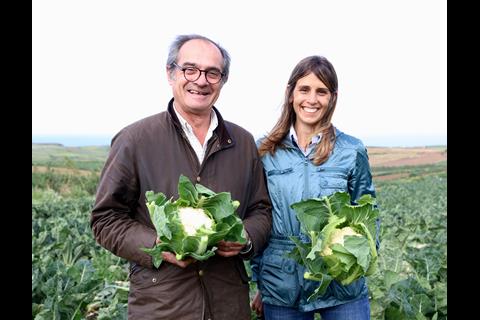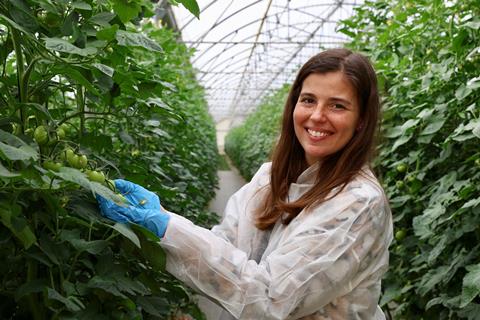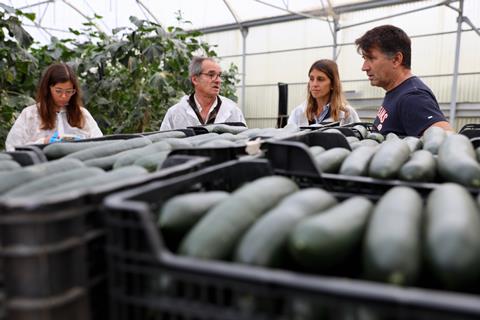Beanstalk Global’s visits to a range of major Portuguese fresh produce companies highlighted the importance of exceptional taste, robust environmental practices, and collaboration across the supply chain
The recent Beanstalk Global filming and photography expedition to Portugal was a resounding success, a journey undertaken with a singular purpose: to capture and promote the very best of farming and fresh produce across the country.
This initiative stems from a critical observation that the farming and fresh produce sectors are not as effective at representing themselves as they could be, particularly when compared to industries like ultra-processed foods that boast significant marketing budgets. Our mission is to bridge this gap, connecting people with the origins of their food, showcasing the passionate individuals behind it, and inspiring a healthier future for both consumers and the industry itself.
The urgency of this mission is underscored by alarming statistics, such as the NFU’s finding that six out of 10 children in the UK don’t know where fresh produce comes from. This lack of awareness highlights a broader challenge: the industry’s inability to create enough engaging content to counteract the heavy advertising of less healthy alternatives.
Furthermore, there’s a need to change the public perception of farmers, particularly in southern Portugal and Spain, where younger generations may not view them as positively as they should – despite their diligent environmental efforts, especially concerning water management.
Our journey revealed incredible stories of innovation, dedication, and a profound commitment to quality and sustainability. Here’s what we discovered from some of Portugal’s leading fresh produce businesses.
Hortipor: a legacy of taste and sustainability
Tomato producer Hortipor, a family business spanning over 50 years, stands out for its unwavering passion for taste and flavour. With 80 hectares of greenhouses and an annual turnover of around €60 million, the company’s owner personally selects all new tomato varieties based on their taste profile, ensuring a premium product that truly “wows” people. This focus on flavour is key to encouraging consumers, especially younger ones, to enjoy more fresh produce.
Hortipor leverages its strategic location in Almograve, southern Portugal, to gain a seasonality advantage. The region’s fresh summer temperatures (26-27°C) allow them to grow quality produce when comparable areas in Spain experience much hotter conditions (32-35°C). While Hortipor primarily serves the domestic Portuguese and Spanish markets, it has also supplied organic products to Germany, the Netherlands and Scandinavia, though logistics pose a challenge for broader international export due to Portugal’s distance.
Environmentally, Hortipor is a leader. The producer harnesses nature to its advantage, employing specific plants like sweet alyssum (Lobularia maritima) – dubbed “Red Bull for bees” – to attract beneficial insects that naturally control pests like tomato leafminer (Tuta absoluta) and whitefly. This biological control significantly reduces reliance on pesticides, which they believe would negatively impact the taste of their tomatoes.
More than half of their growing area uses heating methods, including natural gas and olive biomass, showcasing their adaptive and resource-conscious approach. However, the industry faces challenges in attracting new technical talent and navigating inconsistent European regulations that can disadvantage local growers compared to cheaper, outsourced production.
The Summer Berry Company: pioneers in sustainable soft fruit
The Summer Berry Company (TSBC) Portugal demonstrates an exceptional commitment to sustainability, epitomised by its ESG programme. Operating two farms in Portugal totalling 230 hectares (140ha under tunnels), TSBC aims for year-round supply of premium berries, including strawberries from the UK and raspberries from Portugal.
The producer’s biodiversity initiatives are particularly impressive. TSBC is actively re-establishing traditional Portuguese fruit varieties at risk of extinction (including citrus, figs, apples and pears), not for commercial sale but to conserve genetic diversity and to provide food for their canteen. The business integrates native grasses and flowering plants into its growing areas, which has led to a remarkable 80 per cent reduction in insecticide application by fostering natural pest predators. This is driven not only by cost savings but a genuine belief in environmental stewardship and building resilient farm ecosystems.
Water management is another area where TSBC excels. Its main reservoir, primarily filled with rainwater, and its advanced recycling system for plant runoff (treated with ozone) ensures 100 per cent water efficiency. In 2024, 60 per cent of its total water use came from its own sources, reducing reliance on public water sources and providing crucial resilience against water shortages in the Mediterranean climate.
The company also prides itself on its people-centric approach, maintaining a stable workforce of 400-800 employees and actively engaging with local communities. Its efficient supply chain means berries picked in Portugal can reach UK supermarket shelves within 48 hours.
Pomares do Sol: mastering the art of table grape cultivation
At Pomares do Sol, growing table grapes is akin to a complex game of 3D chess! With 40 hectares dedicated to table grapes, their focus is resolutely on quality over quantity. They understand that consumers will only buy quality produce repeatedly. This necessitates intensive “green operations” like opening shoots and removing leaves to ensure efficient treatment and optimal bunch development, requiring significant manual labour. They apply treatments up to 20 times per season, far more than for wine grapes, to prevent disease outbreaks.
Pomares do Sol demonstrates remarkable adaptability, constantly trialling and replacing varieties based on market demand and performance, such as moving from Crimson to Sugar One and Sweet Cloth grapes. Their innovation in grafting allows them to graft seedless varieties onto existing rootstock, saving a year in production. They also cater to specific market preferences, with Portuguese consumers desiring different sizes, colours and sugar levels in grapes compared to export markets. The business highly values its workforce, employing Moldovan workers who bring vineyard experience, fostering a strong team environment.
Sakata Seed Ibérica: the foundation of future produce
Sakata Seed Ibérica plays a pivotal role in the fresh produce supply chain, developing and introducing new varieties of vegetables, such as cauliflower, cabbage, tomatoes, cucumbers and zucchini. Their dedication to innovation is evident in their rigorous development process, with new varieties undergoing five to seven years of trials globally, including two years specifically in Portugal, to ensure they are adapted to local conditions like altitude, weather and seasonality.
Sakata places immense importance on collaboration and strong relationships with growers. They work closely to understand growers’ needs and market demands, helping them achieve profitability. Their varieties are bred for critical traits including taste, strong plant structure, good weight, vibrant colour, disease resistance (especially against viruses), and a long shelf life.
The company operates with a strong team ethos, describing itself as a “family” where colleagues are synchronised to support each other. While acknowledging the potential of automation, Sakata believes that for high-quality, delicate crops like tomatoes, the human touch and care are irreplaceable. The company also stresses the critical importance of marketing to promote fresh produce and its innovative varieties to a wider audience.
Key learnings and takeaways for the fresh produce sector
The Beanstalk Global trip to Portugal reinforced several crucial lessons for the global fresh produce industry:
Taste and quality are paramount: consistently, growers emphasised that exceptional taste and quality are the ultimate drivers of consumer demand and are key to encouraging healthier eating habits.
Sustainability is smart business: integrating robust environmental practices, from biodiversity enhancement to advanced water recycling, is not just altruistic but leads to tangible benefits like reduced costs, increased resilience, and stronger relationships with retailers and communities. Increasingly, businesses are becoming custodians of the land.
Collaboration drives progress: working together across the supply chain – growers, retailers, seed companies, and even competitors – is vital for knowledge-sharing, innovation, and effectively promoting the sector’s positive message.
People are the core asset: attracting, retaining, and valuing skilled labour is a significant challenge, but also the foundation of successful agricultural operations. Automation, while advancing, cannot replace the human element for many delicate crops.
Adaptability and resilience are non-negotiable: farmers must constantly adapt to changing climates, market trends and emerging diseases. Building resilient systems, whether through diversified water sources or adaptable varieties, is critical for consistent supply.
The power of promotion: the sector desperately needs to amplify its message about the health benefits and environmental care involved in fresh produce. Without stronger marketing, it will continue to struggle against the influence of ultra-processed foods.
To conclude, the Beanstalk Global journey to Portugal underscored that the fresh produce sector is filled with passionate, innovative people working tirelessly to grow amazing, healthy food. By sharing these stories and fostering greater understanding and collaboration, we can help this vital industry thrive and ensure a more conscious and healthier relationship between people and their food globally.
The Beanstalk.Global trip to Portugal was supported by Redfox Executive Selection, Sakata Vegetables Europe S.A.S., Sakata Seed Ibérica, Avant Tecno UK, MDS Ltd, Harper Adams University, Mark Loeffen of Delytics Ltd, Fruitnet, and Fresh Produce Journal.
